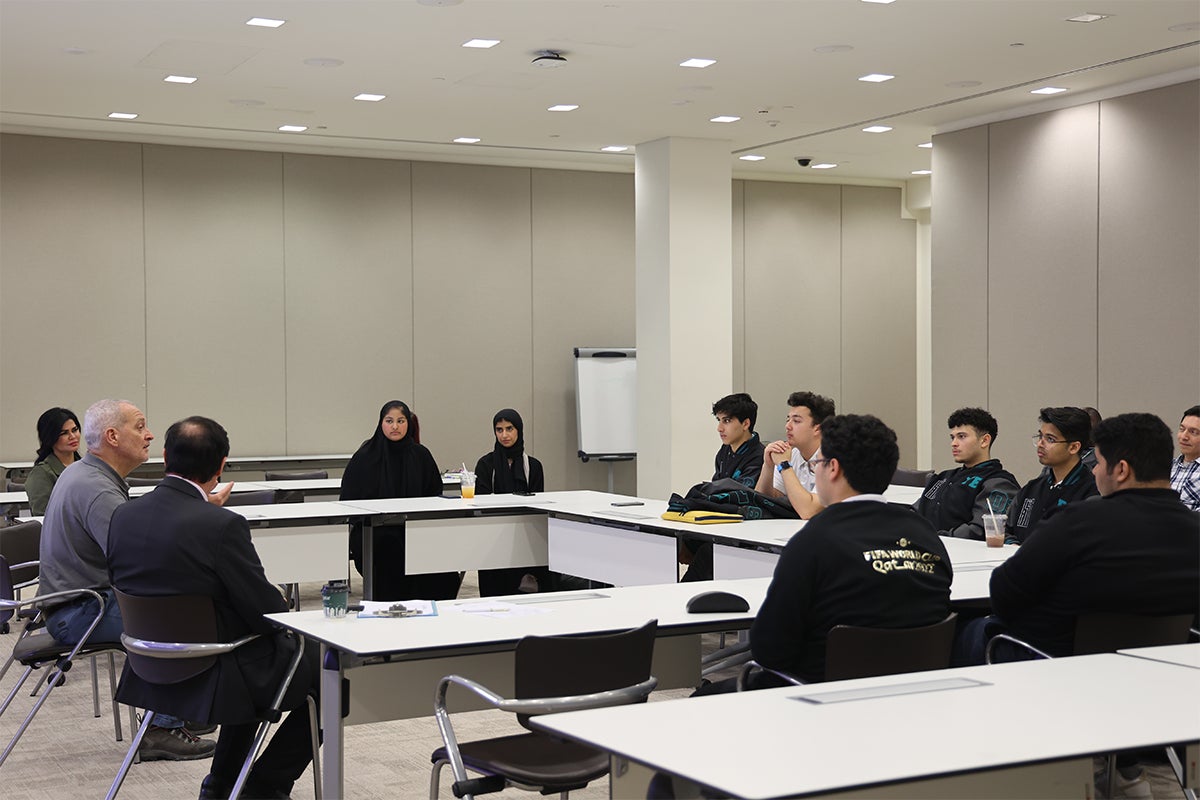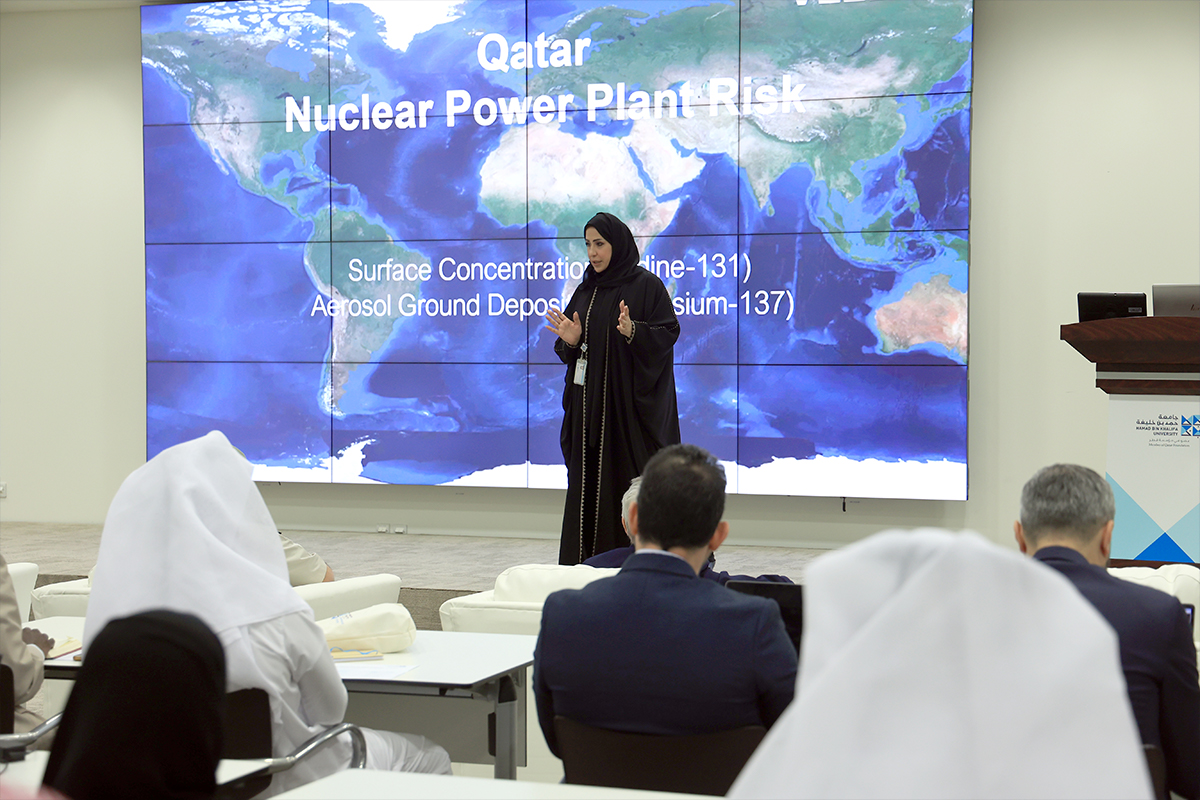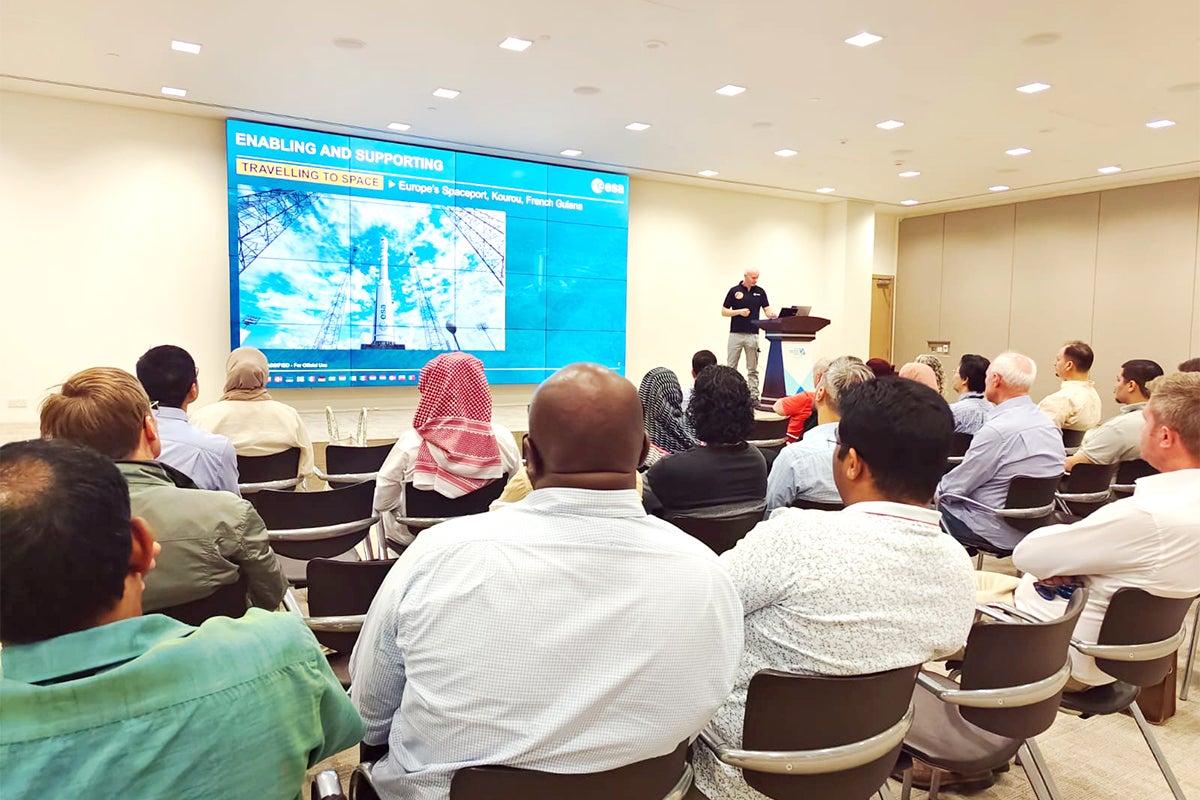Students acquired hands-on experience supporting several sustainable technology projects

Hamad Bin Khalifa University’s (HBKU) Qatar Environment and Energy Research Institute (QEERI) recently concluded its internship program for ten Qatar Academy for Science and Technology students, all of whom supported on key research projects.
The internship program, which featured a two-day-a-week schedule from February 5, 2023, to March 9, 2023, saw the students work alongside researchers from QEERI’s Corrosion Research and Energy Centers on several sustainable technologies-focused projects.
“Our collaboration with Qatar Academy for Science and Technology (QAST) typifies our commitment to building capacity within the country. QEERI works with local schools and institutions to supplement their curricula with education initiatives like this internship program, thereby helping to strengthen a world-class education system that can respond to the current and future needs of the labor market,” said Dr. Marc Vermeersch, Executive Director, QEERI.
“The QEERI team has helped QAST students meet the vision of becoming innovators who master the knowledge and skills required to create solutions for challenges that face Qatar and the World. By involving our students in real research, giving them experiences and opportunities to earn beyond the classroom, QEERI research staff have made an incredible difference to our students’ understanding of how they can impact the world around them and inspire them in their studies. We can’t wait to see opportunities for our future graduates to join QEERI as researchers in a few years time!” Said Vaughan Lewis Assistant Principal, QAST.
The students worked under the guidance of QEERI research staff, including Dr. Hanan Farhat, Senior Research Director; Dr. Maulid Kivambe, Scientist; and Dr. Daniel Astudillo, Scientist. Participants assigned to intern with the CRC received hands-on experience helping in the design and manufacturing of an electrochemical setup for electropolishing and optimizing the mechanical properties of 3D printed parts via different printing strategies. Those assigned to the Energy Center collaborated with researchers to measure the impact of irradiance and temperature on photovoltaic solar panels and test a low-cost solar measurement system via advanced technologies to monitor solar radiation.
At the conclusion of the program, the students gave presentations of their respective research work to classmates and QEERI staff, and then had an open discussion where they exchanged insights from their experience working with their assigned teams at the Institute.
QEERI makes a positive impact on society by attracting minds that catalyze the construction of ecosystems, not only enhancing Qatar’s role and visibility in global science and technology but inspiring a renaissance of Arab science and research for generations to come. As an educational and research, development, and innovation stakeholder, the Institute actively leverages common interests through partnerships and collaborations with top-tier local and international partners, building expertise and research capacity in Qatar.







